Category: Terminal Illness
Articles about terminal illnesses that one typically sees and cares for on hospice.
Articles about terminal illnesses that one typically sees and cares for on hospice.

Delve into the world of dementia with our comprehensive guide. Understand its progression, learn about risk factors and prevention, explore diagnosis and treatment options, and discover coping strategies for cognitive decline. Empower yourself with the knowledge to navigate the challenges of dementia.
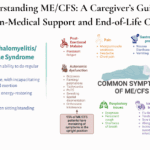
This comprehensive guide helps caregivers, families, and end-of-life professionals understand ME/CFS, providing practical tools for non-medical support. Learn about the disease trajectory from onset to end-of-life care, including when palliative and hospice care should be considered for optimal patient comfort and well-being.
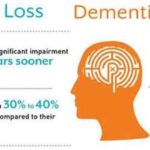
Recent studies have revealed a surprising link between hearing loss and dementia. This article examines the scientific basis of this connection, investigating how hearing impairment may contribute to cognitive decline. Discover practical steps for maintaining hearing health and potentially lowering the risk of dementia, along with cutting-edge research in this critical area of study.
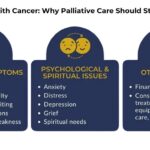
Discover why combining palliative care with cancer treatment from day one can transform your cancer journey. This guide explains how early palliative care provides expert symptom management, emotional support, and better outcomes while maintaining hope and enhancing quality of life.
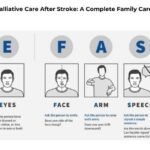
Discover how palliative care can transform the stroke recovery journey for patients and their families. This comprehensive guide explains the benefits, services available, and steps to access palliative care support throughout the United States.
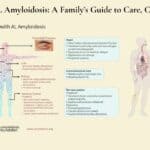
AL amyloidosis is an uncommon yet severe condition that impacts various organs. This detailed guide provides essential information for patients and their families regarding symptoms, disease progression, treatment options, and the timing of considering hospice care for their loved one.
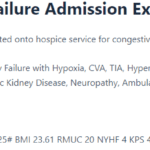
Learn about the essential elements of a comprehensive hospice admission note. This guide helps registered nurses document crucial patient information, from diagnoses to physical assessments, ensuring the delivery of quality end-of-life care and proper eligibility documentation.

Discover how hospitals are crucial in helping families place dementia patients in appropriate care settings. This article explores various care options, discusses challenges in placement decisions, and provides evidence-based strategies for effective hospital-based care coordination to ensure the best possible outcomes for patients and their loved ones.

Discover the theory of retrogenesis and its profound impact on dementia care. This comprehensive guide helps nurses, caregivers, and families understand how dementia reverses developmental stages, offering practical insights for tailored care strategies. Learn to navigate the challenges of dementia with empathy and effectiveness.
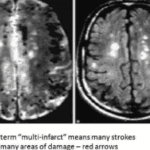
Multi-infarct dementia is a challenging condition that affects not only patients but also their families and caregivers. This comprehensive guide explores the disease's progression, common symptoms, and effective care strategies. Learn what to expect and how to provide the best support for your loved one from diagnosis through end-of-life care.

Posterior cortical atrophy (PCA), also known as Benson's syndrome, is a rare form of dementia affecting visual processing. This article explores PCA's symptoms, progression, and impact on daily life. Learn how to provide effective care, recognize when to seek help, and navigate the challenges of this complex condition.

Dementia is a challenging journey for both patients and caregivers. This comprehensive guide explores the stages of dementia progression and offers practical advice on care strategies, treatment options, and support resources. Learn how to navigate the changes and provide compassionate care throughout the journey.
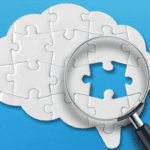
This article delves into Utilization Behavior in dementia, offering practical advice for families and caregivers to create a safe environment and mitigate the challenges associated with this condition.
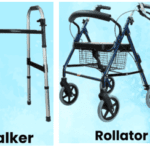
Discover practical and compassionate strategies for encouraging a loved one with dementia to use a cane, walker, or wheelchair. Enhance their safety and quality of life with these tips.
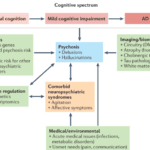
This guide provides hospice nurses, caregivers, and family members with essential information on dementia-induced psychosis, including its signs, symptoms, differentiation from other conditions, and effective management strategies.

This article provides practical tips and strategies for caregivers and family members to prevent dementia patients from removing their oxygen nasal cannula. Ensuring continuous oxygen use is essential for their health and well-being.

Learn about the diagnosis codes not allowed as primary diagnoses on hospice claims. This guide helps hospice agencies ensure accurate billing and optimal patient care.
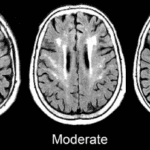
Caring for someone with Chronic Small Vessel Disease (CSVD) can be challenging, but with the proper knowledge and strategies, you can make a significant difference. This guide offers practical advice on creating a supportive environment, managing symptoms, and improving the quality of life for your loved one with CSVD.
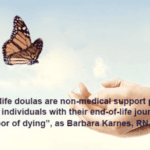
Explore the powerful combination of hospice services and end-of-life doulas in providing holistic care for those facing terminal illness. Learn how these two approaches complement each other to support patients and families through the end-of-life journey.

Discover the essentials of hiring caregivers for terminally ill patients. This guide covers caregiver qualifications, assessing understanding of terminal care, and practical hiring tips.

This comprehensive guide explores blood work for common terminal diseases. Learn which lab tests are necessary for different conditions and how they assist in managing disease progression and treatment. Ideal for caregivers, nurses, and family members.
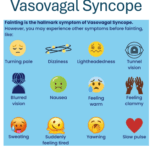
This article explores vasovagal syncope in terminally ill geriatric patients, especially those with cognitive impairments like dementia or brain cancer. It covers prevention, event handling, post-event care, and support for caregivers and family members.

Navigating the process of obtaining a dementia diagnosis for a loved one in denial involves understanding symptoms, preparing for doctor's visits, and participating in testing. This guide offers practical steps for family members to ensure proper treatment and care.

Recognizing when a loved one with dementia can no longer live safely alone is crucial for their well-being. This article helps families identify signs and offers practical steps for ensuring safety and care.